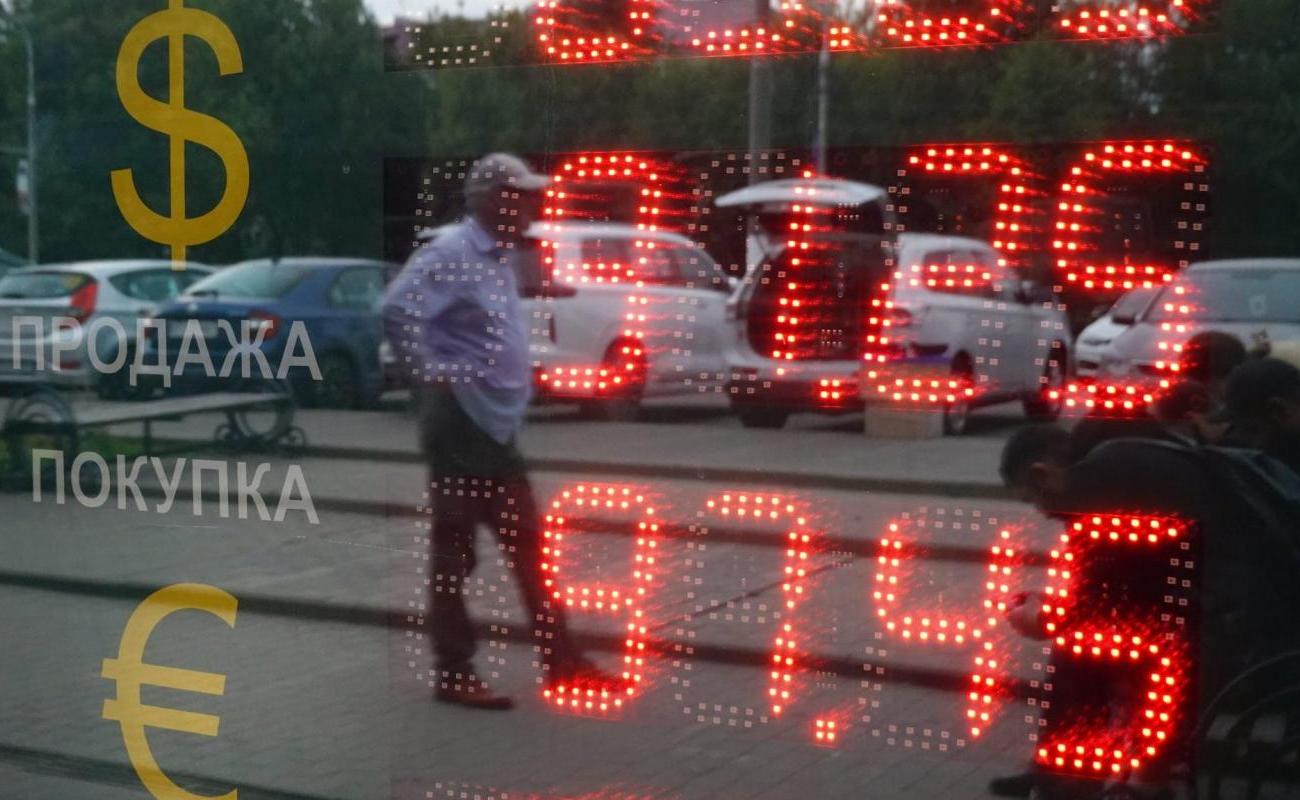News Moldova’s Banks Stop Money Transfers from Russia

Experts in Moldova have welcomed the move by private banks to get in line with international sanctions against Russia, after all banks in the country by Friday had stopped collaborating with the Russian Zolotaya Korona [Golden Crown] money transfer system, which had been the only remaining way to transfer money between Moldova and Russia.
“These banks made an risk assessment and decided that it was right time to proceed this way, rather than being influenced by the Moldovan government, which has always hesitated to impose sanctions on Russia,” Veaceslav Ionita, an economic expert from the Chisinau-based think tank IDIS Viitorul, told BIRN.
But he noted that the stoppage will create big problems for Moldovans in Russia who send money back home. Ionita estimated that about 70 per cent of remittances sent home from Russia come through the banking system.
“I feel sorry for our citizens [in Russia]. There are some, by the way, who are not there as seasonal workers but for 20 or 30 years. It’s an inconvenience, but I understand that our banks have done a risk assessment and, for them, it’s [now] an inherent risk [to transfer money from Russia],” Ionita added.
Four Moldovan banks, Comertbank, Fincombank, Eurocreditbank, and Energbank, previously allowed transfers through this system. The banks did not offer an explanation for the sudden change in rules.
But the measure comes ahead of presidential elections and a European integration referendum on October 20 and after the US imposed new sanctions on Russia over its invasion of Ukraine.
New US sanctions against Russian companies in the technology sector include the Novosibirsk-based Center of Financial Technologies, the company which developed the Zolotaya Korona money system.
Zolotaya Korona allows users to transfer instant money without opening an account and operates widely in the Commonwealth of Independent States, CIS, a bloc of former Soviet countries, and abroad.
In recent years, the number of Moldovan migrants in Russia has decreased, starting with the Coronavirus epidemic in 2020 and continuing with the Russian invasion of Ukraine in February 2022.
The exact number of Moldovan citizens still in Russia is uncler. In 2021, Moldova said it believed 354,200 Moldovan citizens were living in Russia. But experts in Russia in 2022 counted only 76,600.
The volume of remittances has also fallen sharply,, from 442 million dollars in 2022 to 188 million dollars in 2021. By then, Russia was in fourth place as a source country, after Israel, Italy and Germany.
At the same time, during that year, the average transfer ncreased from 326 to 693 dollars. The most recent data, for the third quarter of 2023, show that Russia’s share in the structure of remittances fell to 9.5 per cent.
Personal remittances received by Moldovan residents, from Russia, in the first quarter of 2024 totalled 435.33 million dollars, down by 6.5 per cent from the same period of the previous year. But this volume still represents 11.5 per cent of the country’s GDP.
Russian money is still coming into the Moldova’s pro-Russian Gagauzia region, however, where cards from the Russian MIR payment system are being used illegally.
The governor of Gagauzia, Evgenia Gutu, said in April that she had agreed with Russia’s Promsvyazbank that civil servants and pensioners in the region would be able to open accounts and would each receive about 2,000 lei [100 euros] per month “from our partners” via the Russian bank.
The transactions with the Russian MIR cards are being investigated by the Money Laundering Prevention and Combating Service, as well as the Combating Terrorism Service.
The governor of the National Bank of Moldova warned in June that the use of these cards, which are not accepted by the banking system of Moldova, may have criminal consequences.
MIR cards are also being used in Moldova’s breakaway Russian-controlled region of Transnistria.
